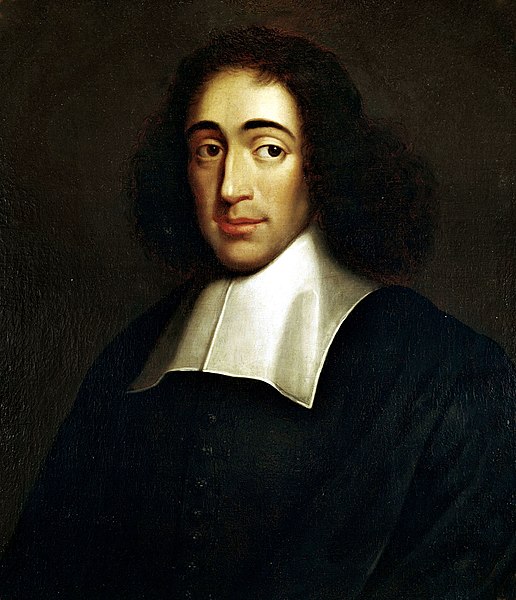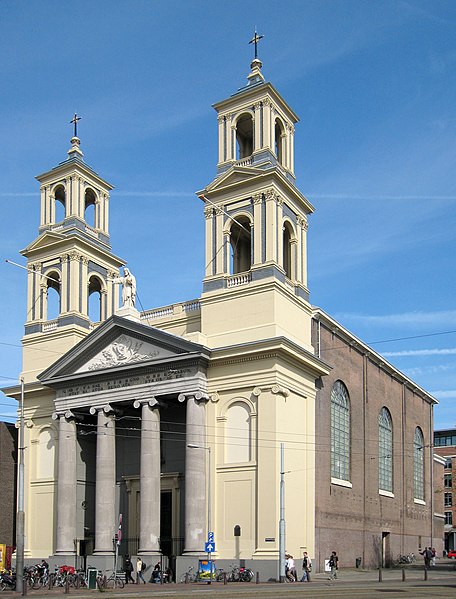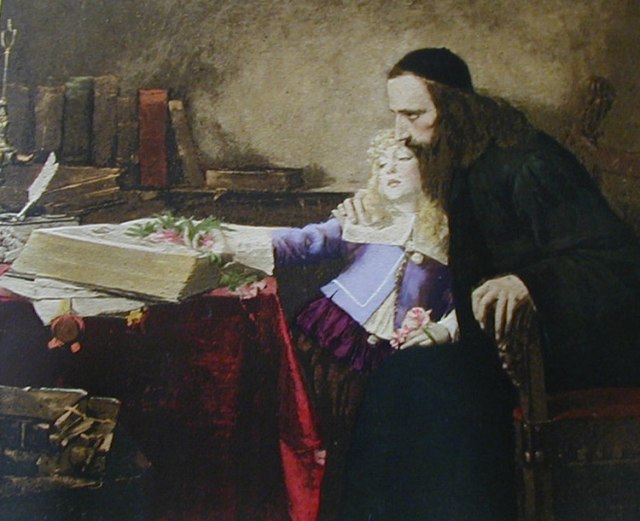Tractatus Theologico-Politicus
The Tractatus Theologico-Politicus (TTP) or Theologico-Political Treatise, is a 1670 work of philosophy written in Latin by the Dutch philosopher Benedictus Spinoza (1632–1677). The book was one of the most important and controversial texts of the early modern period. Its aim was "to liberate the individual from bondage to superstition and ecclesiastical authority." In it, Spinoza expounds his views on contemporary Jewish and Christian religion and critically analyses the Bible, especially the Old Testament, which underlies both. He argues what the best roles for state and religion should be and concludes that a degree of democracy and freedom of speech and religion works best, such as in Amsterdam, while the state remains paramount within reason. The goal of the state is to guarantee the freedom of citizens. Religious leaders should not interfere in politics. Spinoza interrupted his writing of his magnum opus, the Ethics, to respond to the increasing intolerance in the Dutch Republic, directly challenging religious authorities and their power over freedom of thought. He published the work anonymously, in Latin, rightly anticipating harsh criticism and vigorous attempts by religious leaders and conservative secular authorities to suppress his work entirely. He halted the publication of a Dutch translation. One described it as being "Forged in hell by the apostate Jew working together with the devil". The work has been characterized as "one of the most significant events in European intellectual history", laying the groundwork for ideas about liberalism, secularism, and democracy.

Tractatus Theologico-Politicus
Manuscript notes by Spinoza on Tractatus Theologico-Politicus, chapter 9. Adnotatio 14. "That some people think that Jacob had travelled 8 or 10 years between Mesopotamia and Bethel, is redolent of stupidity, Ezra forgive me...".
Portrait of Baruch Spinoza, 1665.
Baruch (de) Spinoza, also known under his Latinized pen name Benedictus de Spinoza, was a philosopher of Portuguese-Jewish origin. As a forerunner of the Age of Reason, Spinoza significantly influenced modern biblical criticism, 17th-century rationalism, and contemporary conceptions of the self and the universe, establishing himself as one of the most important and radical philosophers of the early modern period. He was influenced by Stoicism, Maimonides, Niccolò Machiavelli, René Descartes, Thomas Hobbes, and a variety of heterodox Christian thinkers of his day.
Baruch Spinoza
The Moses and Aaron Church now stands at the site of Spinoza's childhood home.
Samuel Hirszenberg's imagined scene of Uriel da Costa instructing Spinoza (1901)
Excommunicated Spinoza by Samuel Hirszenberg (1907), the second of his two modern paintings imagining scenes of Spinoza's life.






